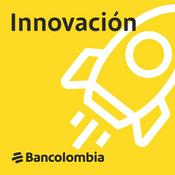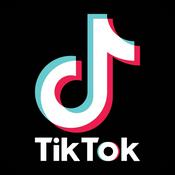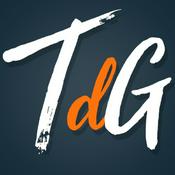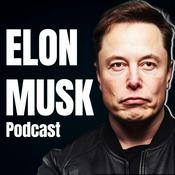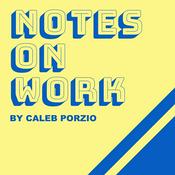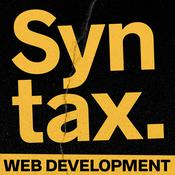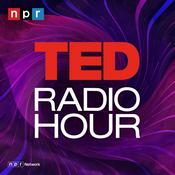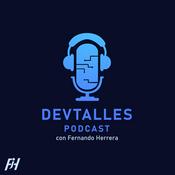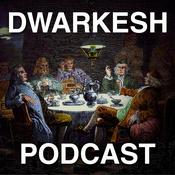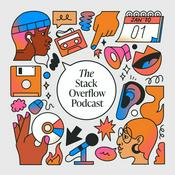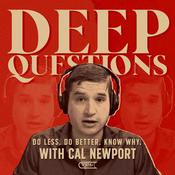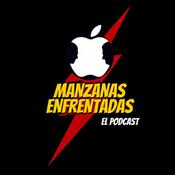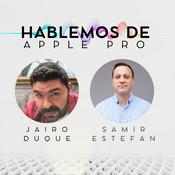14 episodios

13. Taylor Swift vs Ticketmaster
02/1/2023 | 23 min
When tickets for Taylor Swift’s latest tour went on sale in November, Ticketmaster was overwhelmed by forces inside and outside of its control, which resulted in a ticketing fiasco. Looking for reasons, many seized upon Ticketmaster’s market power in ticketing and the broader live music industry, especially after its 2010 merger with Live Nation. As FTC Chair Lina Khan quipped, the fiasco “converted more Gen Zers into anti-monopolists overnight than anything I could have done”. In this episode, we dive into the origins and contemporary manifestations of the Ticketmaster-Live Nation monopoly. (Recorded 9 December 2022) Let us know what you think, by engaging with MONOPOLY ATTACK on Twitter (@MonopolyAttack) and LinkedIn Learn more about the hosts: Kay Jebelli, Counsel to the Computer & Communications Industry Association - Twitter (@KayJebelli), LinkedIn, SSRN Friso Bostoen, Max Weber Fellow at the European University Institute - Twitter (@BostoenFriso), LinkedIn, SSRN Further reading: Friso Bostoen & Jozefien Vanherpe, ‘Competition Law in the Digitized Music Industry: The Winners Take It All—But Should They?’, CPI Antitrust Chronicle, February 2021 U.S. and States v. Ticketmaster and Live Nation (Complaint, 25 January 2010) Christine Varney, ‘The TicketMaster/Live Nation Merger Review And Consent Decree In Perspective’ (Speech, 18 March 2010) Songkick v. Live Nation/Ticketmaster (Complaint, 22 December 2015) Ben Sisario & Graham Bowley, ‘Live Nation Rules Music Ticketing, Some Say With Threats’ (The New York Times, 1 April 2018) Maureen Tkacik & Krista Brown, ‘Ticketmaster’s Dark History’ (The Prospect, 21 December 2021)

12. ASCOLA 2022
12/7/2022 | 19 min
At the end of June 2022, the yearly conference of the Academic Society for Competition Law (ASCOLA) took place in Porto. In between panels of what is perhaps the most important antitrust conference of the year, Kay and Friso caught up with some fellow academics. They talked with Magali Eben about collegiality in the competition law community, with Francesco Ducci about his award-winning paper on randomization as an antitrust remedy, with Rupprecht Podszun about what makes the EU such an exciting place for competition law scholarship, and with Philip Marsden about the importance of antitrust policy for people today. Let us know what you think, by engaging with MONOPOLY ATTACK on Twitter (@MonopolyAttack) and LinkedIn Learn more about the hosts: Kay Jebelli, Counsel to the Computer & Communications Industry Association - Twitter (@KayJebelli), LinkedIn, SSRN Friso Bostoen, Academic at KU Leuven & Research Foundation Flanders - Twitter (@BostoenFriso), LinkedIn, SSRN Further reading: For another perspective on this year’s ASCOLA Conference, we recommend Rupprecht Podszun’s debriefing on the D’Kart Blog. Philip Marsden’s previous antitrust rap is available on YouTube. Francesco Ducci’s paper “Randomization as an Antitrust Remedy” is available here. If you’d like to know more about ASCOLA, check out the website and blog here.

11. What About Microsoft? (Part 2)
14/6/2022 | 37 min
The European Commission’s cases against Microsoft in the 2000s set the framework for the assessment of abusive conduct related to product integration and interoperability, and Microsoft became the first “big tech” company with direct experience of the power of antitrust enforcers. In this episode, we explore how Microsoft adapted its conduct in light of the imposed remedies and their continuous supervision, tracing how the company’s relationship with government enforcers evolved over time. No longer merely a defendant, Microsoft has more recently leveraged its experience to put pressure on its digital rivals and influence ongoing antitrust enforcement in the tech sector. Let us know what you think, by engaging with MONOPOLY ATTACK on Twitter (@MonopolyAttack) and LinkedIn Learn more about the hosts: Kay Jebelli, Counsel to the Computer & Communications Industry Association - Twitter (@KayJebelli), LinkedIn, SSRN Friso Bostoen, Academic at KU Leuven & Research Foundation Flanders - Twitter (@BostoenFriso), LinkedIn, SSRN

10. What About Microsoft? (Part 1)
01/6/2022 | 33 min
Depending on the day of the week, Microsoft is the most valuable company in the world, or at least in the top 5. It’s one of GAFAM, the five “big tech” companies presumptively labeled as “digital gatekeepers” to which new ex-ante antitrust rules will apply under the EU’s forthcoming Digital Markets Act. Founded in 1975, it’s the oldest of the Big Five (one year older than Apple), but has had a much longer history of being a target of antitrust enforcement. Back between Microsoft out-manoeuvring IBM to become the dominant platform for personal computers, and before the dot com bubble crashed, Microsoft faced its first real antitrust issues. In August of 2000, the European Commission sent Microsoft a Statement of Objections, a preliminary finding of anticompetitive conduct, which led to an (at the time record-breaking) fine of over $500 million and an appeal to the Court of Justice of the European Union in Luxembourg. The judgment in that appeal set the precedent for EU competition law in the digital sector. In this episode we do a deep dive into the case, setting the stage for everything that comes next. Let us know what you think, by engaging with MONOPOLY ATTACK on Twitter (@MonopolyAttack) and LinkedIn Learn more about the hosts: Kay Jebelli, Counsel to the Computer & Communications Industry Association - Twitter (@KayJebelli), LinkedIn, SSRN Friso Bostoen, Academic at KU Leuven & Research Foundation Flanders - Twitter (@BostoenFriso), LinkedIn, SSRN

9. Gaming Industry Consolidation
14/2/2022 | 28 min
At the start of 2022, the gaming market was shaken up by a series of acquisitions, including Microsoft/Activison Blizard, Sony/Bungee and – last but not least – New York Times/Wordle. In this episode, we examine the current state of the gaming market, the innovation on the horizon, and how competition authorities may assess recent acquisitions. (Recorded 7 February 2022) Note: On 9 February 2022, Microsoft announced the ‘principled approach to app stores’ it is adopting ahead of regulation, which ties in with our discussion of Microsoft’s role in current regulatory debates. Let us know what you think, by engaging with MONOPOLY ATTACK on Twitter (@MonopolyAttack) and LinkedIn Learn more about the hosts: Kay Jebelli, Counsel to the Computer & Communications Industry Association - Twitter (@KayJebelli), LinkedIn, SSRN Friso Bostoen, Academic at KU Leuven & Research Foundation Flanders - Twitter (@BostoenFriso), LinkedIn, SSRN
Más podcasts de Tecnología
Podcasts a la moda de Tecnología
Acerca de MONOPOLY ATTACK
Escucha MONOPOLY ATTACK, Innovación Bancolombia y muchos más podcasts de todo el mundo con la aplicación de radio.net

Descarga la app gratuita: radio.net
- Añadir radios y podcasts a favoritos
- Transmisión por Wi-Fi y Bluetooth
- Carplay & Android Auto compatible
- Muchas otras funciones de la app
Descarga la app gratuita: radio.net
- Añadir radios y podcasts a favoritos
- Transmisión por Wi-Fi y Bluetooth
- Carplay & Android Auto compatible
- Muchas otras funciones de la app


MONOPOLY ATTACK
Descarga la app,
Escucha.
